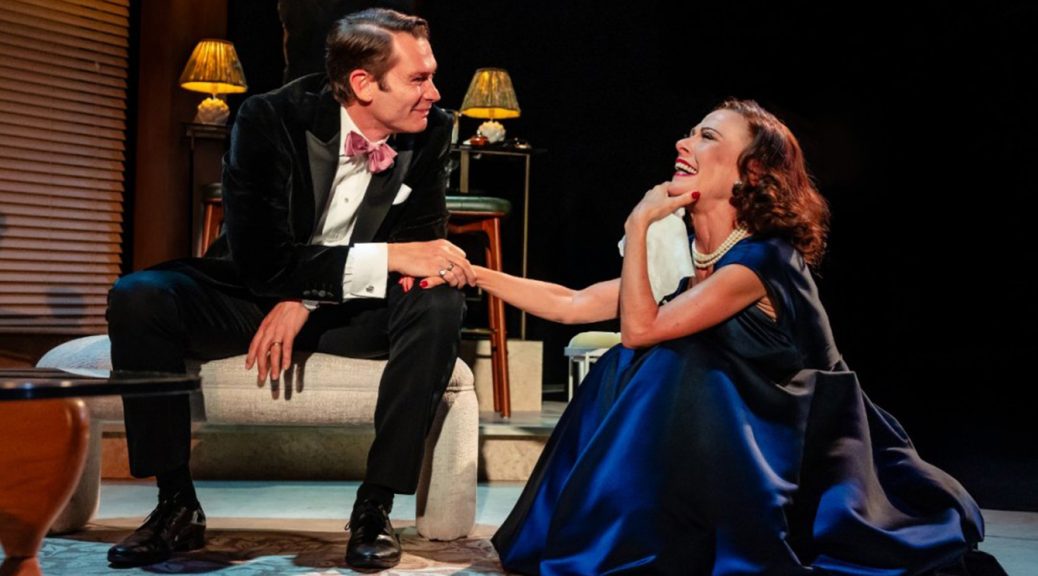Hollywood glamour often has an allure for the stage. And themes of censorship are unfortunately topical. So, a play set in 1950, as the Hays morality code is in full swing for films, ticks boxes. Playwright Michael McKeever pits a gay producer and his protégé against former star, Billy Haines. All three men make the personalities behind the arguments engaging. The play has its problems but is, overall, a good effort, worth seeing.
Like a hit from earlier this year, Retrograde, Tinseltown allows us to examine ethics with a bit of history added. The dilemma here is whether to follow the code of the title, the unspoken rule to tolerate homosexuality as long as it is never mentioned aloud. Producer Henry Willson, depicted with subtle creepiness by Nick Blakeley, plays the game; indeed he uses it to manipulate the impressionable Chad, who wants to become a star. Solomon Davy makes this younger role and the uncomfortable dynamic work well: guessing what Chad will do is a neat puzzle.

The moral compass they are both up against is a big part to fill. Haines, who in real life was blacklisted but went on to have a career as an interior designer, is understandably self-righteous. Thankfully, John Partridge, who takes the part, convinces us about his character’s charisma and deals well with some of the weaker humour in the script. Haines is said to inspire both “pity” and “awe”, at least according to Willson. This isn’t accurate – remember who the description comes from – but Partridge manages to show why we could feel sorry, why we might admire, and when neither is the case. It’s a sound device to model the arguments in the piece around.
Direction, by Christopher Renshaw, is admirably restrained. The Code is a static affair, set in one room, but the claustrophobia is embraced and proves an asset. Yet the script is flawed. Too much talk of “authenticity” drags us out of the period. And a preachy tone from all the characters doesn’t sit well with their high living and streaks of selfishness. A lot of exposition is clunky and for far too much of the time, characters are telling one another what they already know. Chad, as a device to explain why so much ground is covered, becomes increasingly clumsy.
There is a final treat that tips the balance in favour of The Code. The presence of Tallulah Bankhead aids the piece enormously. This is a very strong, and enjoyable, performance from Tracie Bennett. Bankhead is the life and soul of the party, with some great home truths. Arguably, she helps the audience too much. I’m not sure three scenes of direct address are needed, no matter how well Bennett executes them. But Bankhead, and Bennett’s, presence lifts the show, injecting much needed energy and confirming how well-acted the piece is.
Until 11 October 2025
Photos by Danny Kaan and Steve-Gregson


